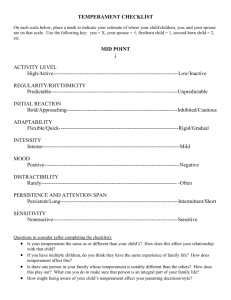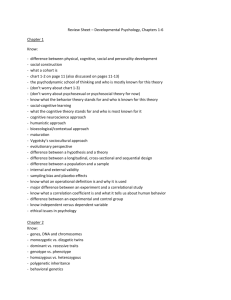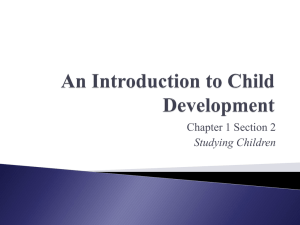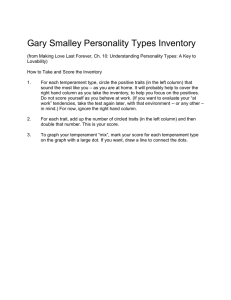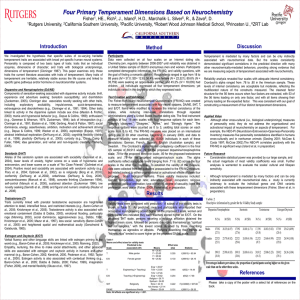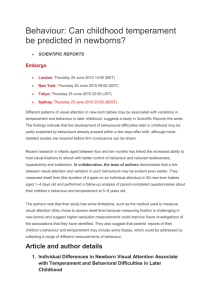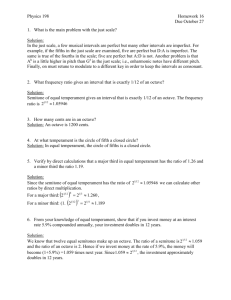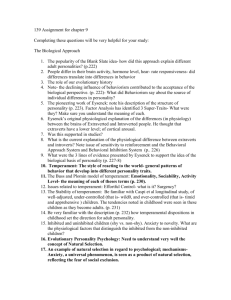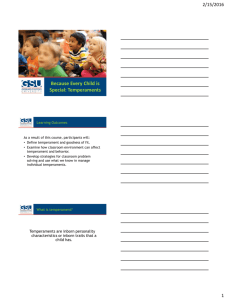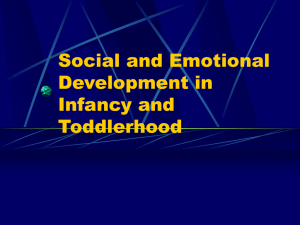Genetic and environment factors in formal
advertisement
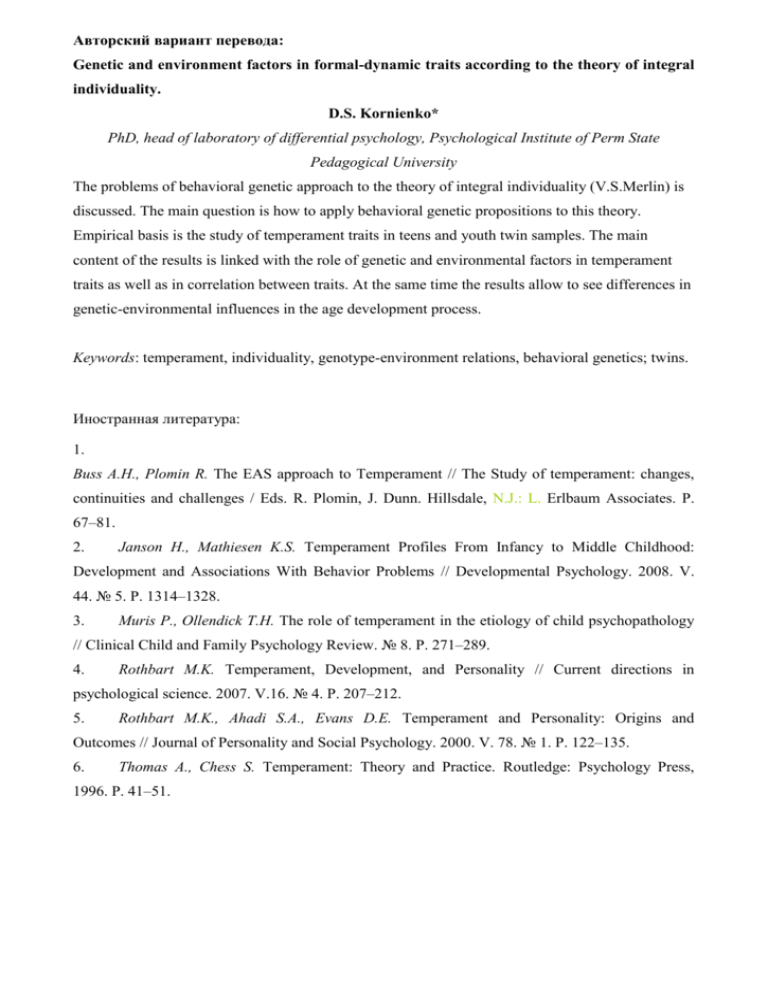
Авторский вариант перевода: Genetic and environment factors in formal-dynamic traits according to the theory of integral individuality. D.S. Kornienko* PhD, head of laboratory of differential psychology, Psychological Institute of Perm State Pedagogical University The problems of behavioral genetic approach to the theory of integral individuality (V.S.Merlin) is discussed. The main question is how to apply behavioral genetic propositions to this theory. Empirical basis is the study of temperament traits in teens and youth twin samples. The main content of the results is linked with the role of genetic and environmental factors in temperament traits as well as in correlation between traits. At the same time the results allow to see differences in genetic-environmental influences in the age development process. Keywords: temperament, individuality, genotype-environment relations, behavioral genetics; twins. Иностранная литература: 1. Buss A.H., Plomin R. The EAS approach to Temperament // The Study of temperament: changes, continuities and challenges / Eds. R. Plomin, J. Dunn. Hillsdale, N.J.: L. Erlbaum Associates. P. 67–81. 2. Janson H., Mathiesen K.S. Temperament Profiles From Infancy to Middle Childhood: Development and Associations With Behavior Problems // Developmental Psychology. 2008. V. 44. № 5. P. 1314–1328. 3. Muris P., Ollendick T.H. The role of temperament in the etiology of child psychopathology // Clinical Child and Family Psychology Review. № 8. P. 271–289. 4. Rothbart M.K. Temperament, Development, and Personality // Current directions in psychological science. 2007. V.16. № 4. Р. 207–212. 5. Rothbart M.K., Ahadi S.A., Evans D.E. Temperament and Personality: Origins and Outcomes // Journal of Personality and Social Psychology. 2000. V. 78. № 1. P. 122–135. 6. Thomas A., Chess S. Temperament: Theory and Practice. Routledge: Psychology Press, 1996. P. 41–51.
